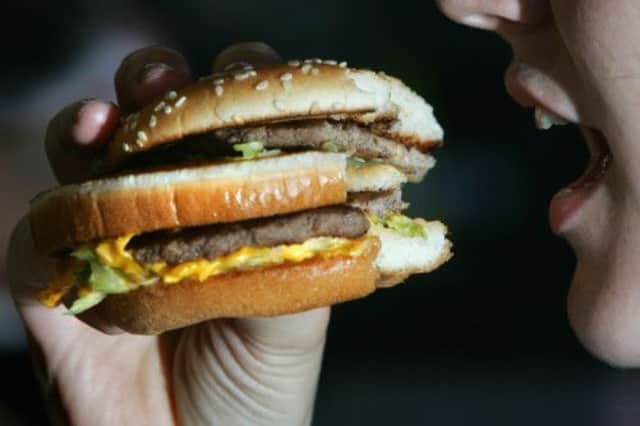Aberdeen Uni to research Scots’ eating habits


They plans to use a range of sophisticated monitors to track 120 people over the course of a a week, monitoring their food choices and activity levels and also how they are feeling at the time.
The researchers, who are currently seeking volunteers for the new snapshot survey, also plan to record how much time their volunteers spend being inactive during the week long study.
Advertisement
Hide AdAdvertisement
Hide AdDr David McMinn, a research fellow at the university’s Rowett Institute of Nutrition and Health, is leading the day to day running of the study. He said: “We live in an environment where snack foods are readily available, and where desk jobs and labour saving devices mean that we are less active than in previous generations.
“Because our environment makes it easy to consume high calorie snack foods and spend long periods of time inactive, eating well and being active requires considerable self-regulation. It requires us to make an effort, such as deciding not to snack in order to maintain a healthy weight.”
Dr McMinn continued: “We are particularly interested in the way food choices and physical activity behaviours are linked to psychological processes in the brain called the ‘executive functions’. We use executive functions to achieve goals, for example, planning actions in advance, solving problems, ignoring distractions and resisting temptations.
“The executive functions can be depleted if used intensively, or due to particularly stressful situations. We are interested to know if reductions in executive functions are associated with behaviours such as snacking on unhealthy foods or sedentary behaviour.”
He added: “Information from the different monitoring devices will be used to identify where periods of snacking, activity, sedentary behaviour, and stress occur. The aim is to try to understand why people snack, because we all know that sticking to a healthy diet is easier said than done.”
A university spokesman explained: “Participants will wear a detachable heart monitor, a small electronic food, mood and reaction time diary on their wrist, and an easily concealed belt featuring two monitors - one continuously recording the wearer’s activity levels; the other, a GPS device: monitoring their location so researchers can map where snacking, physical activity, and sedentary behaviours occur.
“Researchers hope to recruit onto the study 120 people, over 18, who are not taking beta-blockers and who are able to attend the University’s health sciences building on the Foresterhill campus to take part in psychological testing ahead of the seven-day monitoring period.”